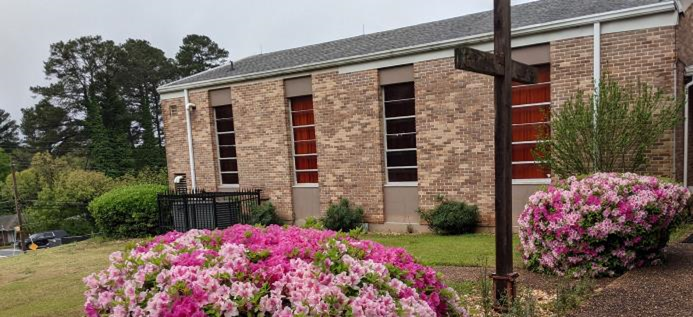Episodes

Friday May 22, 2020
Friday May 22, 2020
“Anatomy of an Illness: The Church’s Ministry of Healing”
John 9:10-12 (Part 1)
I First, sickness gets our attention and it gets the attention of Jesus (9:1).
II Second, sickness makes us uncomfortable (9:2).
III Third, sickness is caused by alienation (9:2).
IV Fourth, oftentimes our best theological or commonsense explanations for sickness are not good enough (9:3a).
V Fifth, sometimes sickness happens for a good reason, so that God can be glorified in our life (9:3b).
VI Sixth, all believers in Jesus are called to help sick people find health (9:4).
VII Seventh, sickness is a work of the kingdom of darkness; healing is a work of the Kingdom of light (9:5).
VIII Eighth, the how of healing is very important (9:6).
IX Ninth, sickness can be overcome by divine healing, but healing does not happen without some action on our part (9:7).
X Tenth, divine healing will always arouse doubt (9:8-9).
XI Eleventh, the response to the healing of sickness is often __________________ (9:10-12)
A. This whole episode in the ministry of Jesus began with a question in John 9:___.
1. In John 9: ____-____ there is a second question.
2. It appears that by the end of verse 9 the neighbors and the crowd realize that they cannot ___________ from the truth.
B. What do they do? They resort to _______________.
1. We put questions to people for a _______________ of reasons:
a. First, we ask people questions because we are genuinely in search of i______________________.
b. Second, we ask questions to d______________ ourselves.
c. Third, we use questions to s____________ people.
d. Fourth, we also use questions to c_____________ doubt.
2. People who do not believe in God often try to use questions, both to shame believers, and to create doubt. They have this idea that if they can ask a question which a Christian cannot answer, that somehow proves that Christianity is ________________.
3. One of the favorite tactics of people who disbelieve the Bible is to ask a Christian to explain what the non-believer thinks is a c_______________ in the Bible.
4. In Mark 2:26 Jesus explains to the Pharisees why it was not wrong for his disciples to ___________ grain to eat on the Sabbath day. Jesus says in Mark 2:25, “Have you never read what David did when he and his companions were hungry and in need? In the days of Abiathar the high priest, he entered the House of God and ate the consecrated bread which is lawful for only priests to eat.”
i. The problem here is that, according to 1 Samuel 21:1-6, when David and his men did that, it was _________ Abiathar who was priest, but Ahimelech.
ii. So, the argument goes, Jesus, or Mark, or someone, made a __________________.
iii. If, then, the Bible has e_____________, it must not be God’s Word as Christians claim it to be.
5. This argument, however, has serious weaknesses:
i. First, Jesus did not actually say that this incident happened ___________ Abiathar was high priest. He said it happened “in the ___________ of Abiathar the high priest.”
-Abiathar was ___________ at that time and very much involved in what was happening, which means it is still __________ to say that when David and his men ate the special consecrated bread, it was in the days of Abiathar.
ii. Second, when Jesus says this happened “in the days of Abiathar the high priest,” what the original Greek text ___________ says is that this happened epi Abiathar.
A. Epi Abiathar could refer to t________, meaning “in the days of Abiathar,” but it could also refer to p__________.
B. Since Abiathar is more _______-__________ in Israel’s history than Ahimelech, if you could not refer people to 1 Samuel 21:1-6, then a good way to do it would be to say, “in the p____________ about Abiathar.”
iii. Third, if Jesus had only used Ahimelech as an example of someone who was not enslaved to the law, but who put the welfare of people above the law, the Pharisees could have r________________ the argument because Ahimelech was only a priest at Nob.
C. The next time someone questions us about what they suppose is a c_______________ in the Bible, what should we do?
1. First, try to remember w______ they are asking the question. It is likely that what they really want to do is to create _____________.
2. Second, even though they are not asking to get r_________ information, remember that we can use their question as an o_________________ to give them genuine information about the passage in question.
3. Third, we can very politely ask them how much they have ____________ the text which they think is proof of a contradiction. If they admit that they have not done much study, then we can politely suggest that they may not have e______________ information to make a valid judgment.
4. Fourth, we can remind them that the biblical writers were not ________________________.


Comments (0)
To leave or reply to comments, please download free Podbean or
No Comments
To leave or reply to comments,
please download free Podbean App.